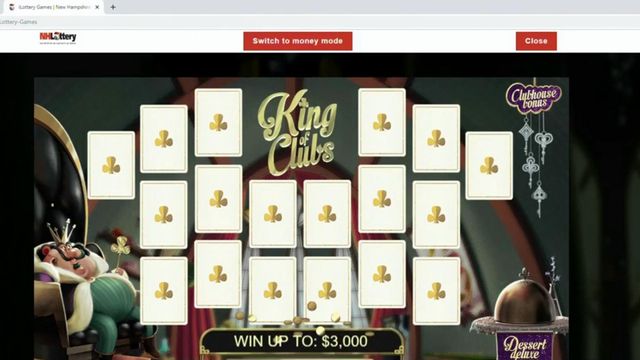After years of outlawing sweepstakes machines in NC, lawmakers seek to regulate, tax video gambling
It's just more sweepstakes machines, opponents say. Legalization produces revenue and dries up underground gambling, supporters counter.
Posted — UpdatedBars and convenience stores could have video lottery terminals under a bill that started moving Tuesday at the legislature.
Supporters said the bill would raise tax revenue for the state, and they added $2 million a year to the bill Tuesday for historically black colleges and universities in the state and created a community college scholarship program – enticements for lawmakers who might otherwise oppose the bill.
Sponsoring Rep. Harry Warren, R-Rowan, told lawmakers the video lottery bill should cut sweepstakes machines in the state by 65 to 70 percent. The North Carolina Sheriffs' Association, which opposes the bill, quickly pushed back.
“This bill doesn’t eliminate the machines that are already there," Eddie Caldwell, the association's lobbyist in Raleigh, said. "(It only creates) a large number of additional machines.”
Asked after the meeting for more information, Warren said he doesn't do interviews, and he referred questions to co-sponsoring Rep. Tim Moffitt, R-Henderson, who said he'd work on getting an answer. Rep. Jason Saine, R-Lincoln, who made the motion to move this bill through the House Commerce committee, said legalization should dry up underground demand.
The bill sets up a tiered system of machine manufacturers, owners and merchants, along with a revenue split:
- At least 32 percent to the state
- No more than 8 percent to the North Carolina Education Lottery for monitoring and enforcement
- 35 percent to "operators" who own or lease machines
- 25 percent to merchants who have the machines in their businesses
Licensees would pay the following annual fees:
- Manufacturers – $50,000
- Operators – $24,000 a year, plus $150 a machine
- Retailers – $1,000 per location, plus $150 per terminal
All machines would have to be connected to a central monitoring system, and they couldn't be within 1,000 feet of a school or a church. Only retailers with state Alcoholic Beverage Control licenses to sell liquor, either to-go or in-person, could host machines. Moffitt said that should aid enforcement, because the state's Alcohol Law Enforcement agents are already in and out of those places.
Gamblers would have to be at least 21 under the bill, and the machines would give winners vouchers they could trade for cash or more plays. Odds would have to be posted, and state lottery officials would decide how much people could wager at a time.
In addition to the sheriffs' association, the North Carolina Family Policy Council opposed the bill in committee Tuesday, with Executive Director John Rustin saying the measure would "do incredible harm" to people, marriages and families by adding to a sweepstakes phenomenon the state has tried to get rid of for a decade.
"There is nothing in this bill that would limit, that would restrict or that would eliminate video sweepstakes," Rustin said.
Caldwell said the combination of gambling and alcohol would be trouble.
“These are not high-roller folks that can afford to go to Vegas," he said. "These are folks who are betting their rent money and their grocery money."
Moffitt said it's already clear lawmakers can't stop gambling in North Carolina, and the choice is whether to regulate it. At least that allows the state to “use the proceeds in a constructive way," he said.
The bill cleared the committee on what appeared to be a lopsided, bipartisan voice vote. It heads next to the House Finance committee.
Related Topics
• Credits
Copyright 2024 by Capitol Broadcasting Company. All rights reserved. This material may not be published, broadcast, rewritten or redistributed.






